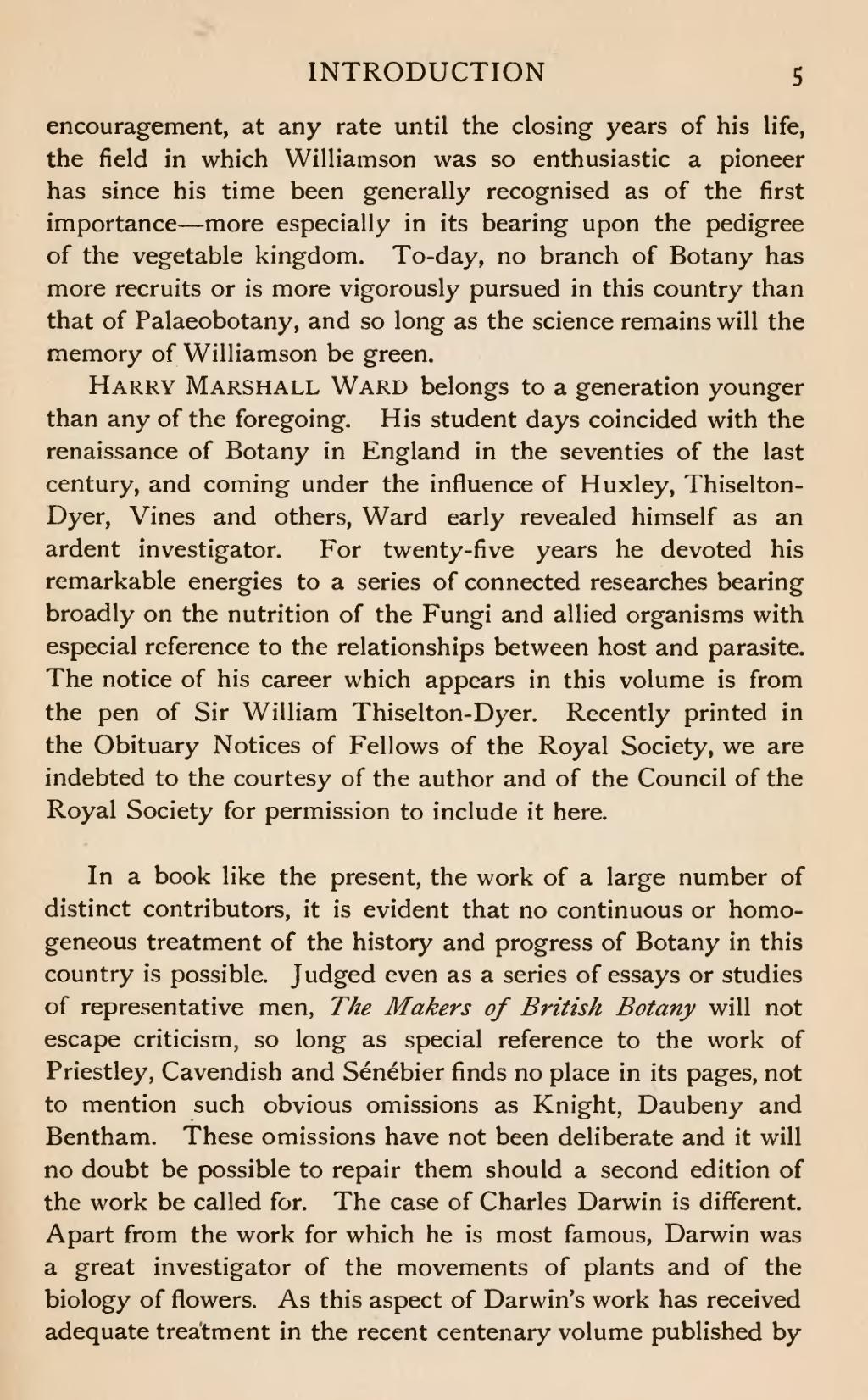encouragement, at any rate until the closing years of his life, the field in which Williamson was so enthusiastic a pioneer has since his time been generally recognised as of the first importance—more especially in its bearing upon the pedigree of the vegetable kingdom. To-day, no branch of Botany has more recruits or is more vigorously pursued in this country than that of Palaeobotany, and so long as the science remains will the memory of Williamson be green.
Harry Marshall Ward belongs to a generation younger than any of the foregoing. His student days coincided with the renaissance of Botany in England in the seventies of the last century, and coming under the influence of Huxley, Thiselton-Dyer, Vines and others, Ward early revealed himself as an ardent investigator. For twenty-five years he devoted his remarkable energies to a series of connected researches bearing broadly on the nutrition of the Fungi and allied organisms with especial reference to the relationships between host and parasite. The notice of his career which appears in this volume is from the pen of Sir William Thiselton-Dyer. Recently printed in the Obituary Notices of Fellows of the Royal Society, we are indebted to the courtesy of the author and of the Council of the Royal Society for permission to include it here.
In a book like the present, the work of a large number of distinct contributors, it is evident that no continuous or homogeneous treatment of the history and progress of Botany in this country is possible. Judged even as a series of essays or studies of representative men, The Makers of British Botany will not escape criticism, so long as special reference to the work of Priestley, Cavendish and Sénébier finds no place in its pages, not to mention such obvious omissions as Knight, Daubeny and Bentham. These omissions have not been deliberate and it will no doubt be possible to repair them should a second edition of the work be called for. The case of Charles Darwin is different. Apart from the work for which he is most famous, Darwin was a great investigator of the movements of plants and of the biology of flowers. As this aspect of Darwin's work has received adequate treatment in the recent centenary volume published by
